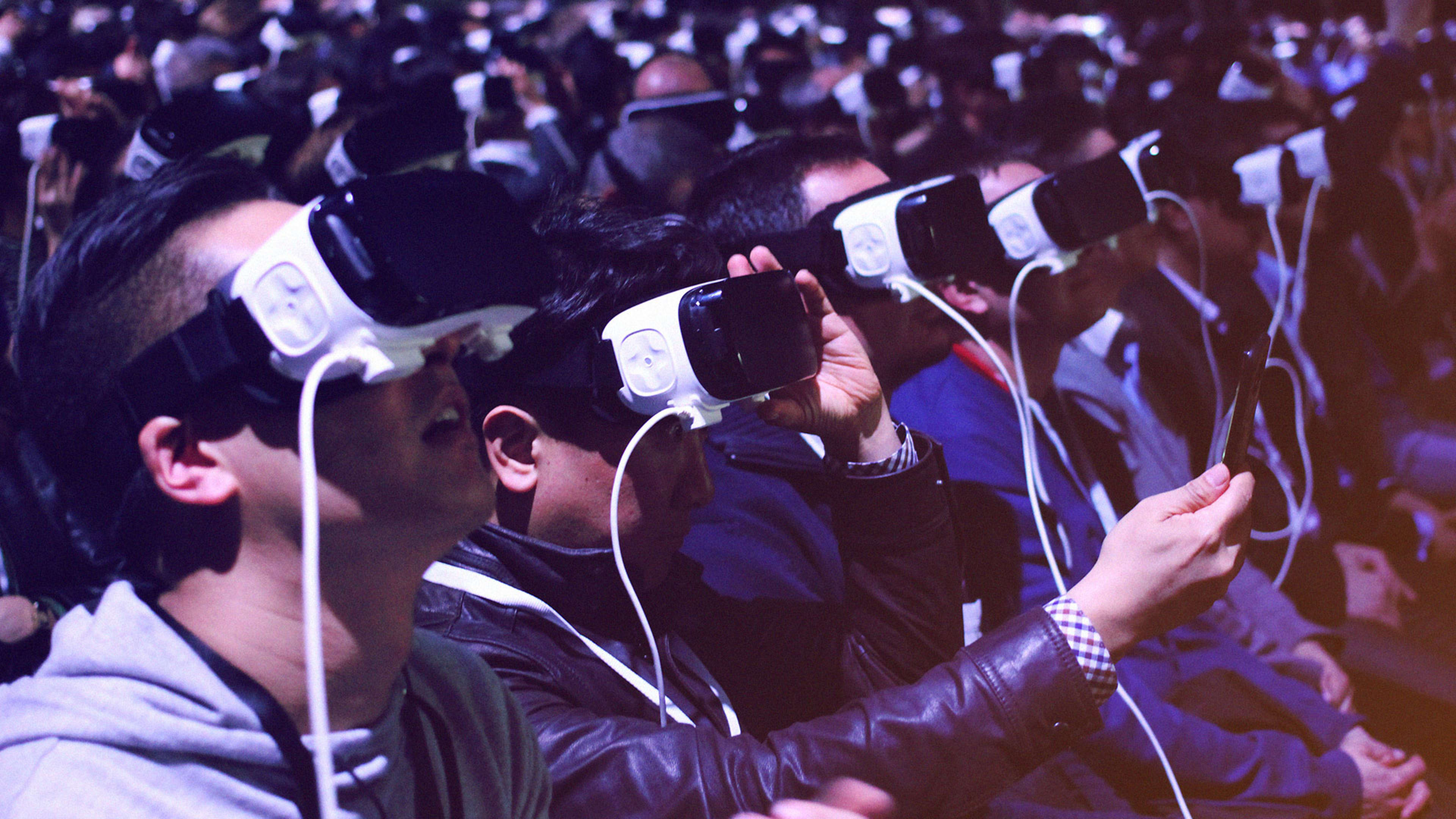The universal truth about VR headsets is that nobody looks cool wearing them. In fact, most people look like dazed ducks with blunted bills where their eyes should be, trying to feel their way through a foggy bog at night. Of course, it only takes strapping in for the right VR experience just once to realize that looking momentarily uncool is a small price to pay.
During a panel at Fast Company’s Innovation Festival on Monday, representatives from Google and TBWA/Chiat/Day demonstrated that what most people have seen (or experienced) from VR so far is just the beginning. As the novelty of VR fades, it’s being replaced by utility. One major function that virtual reality will be used for more often is storytelling–or as Abigail Posner, head of strategic planning at Google Zoo, calls it, “storyliving.” What VR is beginning to do to narrative experiences now is lend them a you-are-there immediacy and immersion that may render “flat” 2D versions comparatively dull.
“VR totally shatters the storytelling experience,” said Posner, who was amped up and playfully profane throughout the panel. “It completely rids us of our assumptions of what storytelling should be like.”
While it may have once been viewed as “the pet rock of technology,” as TBWA/Chiat/Day New York CEO Rob Schwartz, put it, VR is finally finding its footing. The company has recently helped put together experiences promoting movies like Dunkirk and Alien: Covenant, offering hints of what will happen when visual virtuoso filmmakers embrace the technology. The ability to let users go a step beyond walking in someone else’s shoes–and instead briefly inhabiting their lives–opens up a world of storytelling possibilities for brands, entertainers, and consumers.
Posner offered three specific ways VR is changing storytelling:
- Unlike reading a book or watching a movie, the onslaught of stimulation means users can’t be distracted by anything. It’s the end of multitasking!
- There is no narrative frame. A VR story is totally open source. Users navigate where they want to go. Every adventure is a choose-your-own adventure.
- Stories are more likely to be nonlinear. They might be about a moment in time, and then that moment is slowed down so users can absorb every single detail. Users now have the chance to look under the hood, and feel the nuances of a story in a new way. Imagine, for instance, getting to explore some of the immaculately composed spaces in a Wes Anderson movie. (Editor’s note: As of this time, Wes Anderson has not committed to any VR projects.)
On the YouTube channel for Backslash, TBWA’s cultural editorial arm, users can strap on a Cardboard or Daydream headset, and experience what documentaries are like in VR. Films like Saving the Salton Sea and Trapped in Tijuana place users right in the middle of the action, and turn narrators into tour guides. Chay Lee, content director at Backlash, admits he wasn’t personally into VR until he started producing projects like these. Once he began to experiment with the headset at his home, he realized how closely the viewer’s experience would match up with the experience of being on location. He was hooked.
So far, Lee and the other panelists have not discovered a way to make users look cooler while wearing a VR headset, but they’re hard at work making cool things to watch while wearing them, and that’s probably more important.
Recognize your brand’s excellence by applying to this year’s Brands That Matter Awards before the early-rate deadline, May 3.
